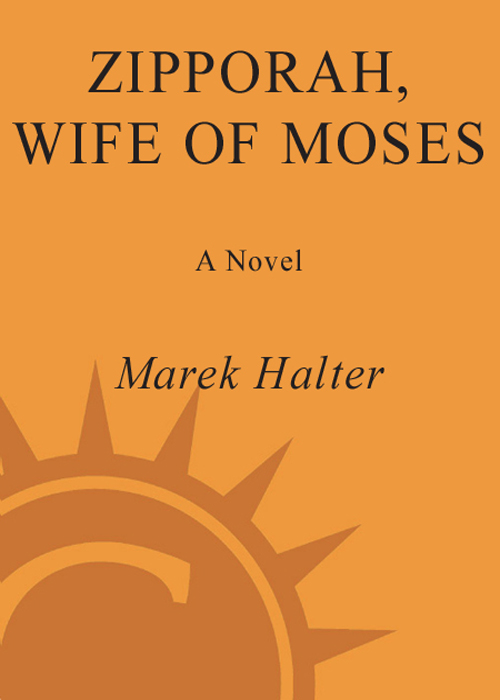
Zipporah, Wife of Moses
Canaan Trilogy, Book 2
- اطلاعات
- نقد و بررسی
- دیدگاه کاربران
نقد و بررسی

June 6, 2005
In his enjoyable but uneven second installment in the Canaan trilogy (Sarah
), Halter takes his cue from the biblical story of Moses to imagine the life of Moses's little-known wife. In Midian, the pride of High Priest Jethro is his lovely and wise adopted daughter, Zipporah, a Cushite, yet he can't find a husband for her because she is black. Zipporah dreams about an Egyptian prince who waits for her at the bottom of the sea; Moses (literally the man of her dreams) arrives on the scene just as marauding shepherds attack. Zipporah's heart is stirred by the handsome vagabond, but so is the lust of her beautiful, cruel sister. When Moses chooses Zipporah, she realizes that before she can love him unreservedly, she must first make him face his destiny. Halter includes many rich cultural details and plenty of steamy sex, and he strikes a balance on miraculous occurrences, offering plausible ideas for some (the burning bush may have resulted from volcanic activity) while leaving others open to divine activity. Though it opens well, the book loses energy and culminates in a disappointing conclusion. Although this is not as engaging as The Red Tent
, it should appeal to the same readership.

Starred review from June 15, 2005
"Sarah", the first book in Halter's "Canaan Trilogy," was enthralling, but this follow-up is even better. Mentioned by name only three times in the book of Exodus, Zipporah is given a rich heritage and a powerful voice here. The daughter of a Cushite (i.e., African) woman who died shortly after her birth, she is raised and loved dearly by Jethro, high priest and leader of the Midianites. But her dark skin sets her apart from the tribe and condemns her to a life of isolation and loneliness; it isn't until Moses stumbles out of the desert fleeing the Egyptians and into Jethro's camp that Zipporah's destiny changes. Within a few short years, she becomes Moses' wife and the mother of his children. Bolstered by her strength of character and firm belief in him, Moses finds the courage to return to Egypt and demand the release of his people from slavery. Halter's Zipporah is a woman of passion, loyalty, and faith, and readers will cheer her on. Highly recommended, particularly for libraries whose patrons have asked for more books like Orson Scott Card's "Women of Genesis" series and Anita Diamant's "The Red Tent". [See Prepub Alert, "LJ" 3/15/05; "The Canaan Trilogy" will conclude with "Lilah", due for a 2006 release. -Ed.] -Jane Baird, Anchorage Municipal Libs., AK
Copyright 2005 Library Journal, LLC Used with permission.

May 15, 2005
Halter continues with the second installment of his trilogy on biblical women, which began with " Sarah "in 2004. He again uses the frame of a biblical story--here, Moses' relationship with Zipporah, the daughter of Jethro--but this time the tale he tells is more overtly feminist. Zipporah is a Cushite, a black woman, and though she has found love and acceptance in her adoptive family, it's unlikely she will find a husband. Then she has a dream about an Egyptian prince, and before long, Moses appears--but a diffident Moses, very different from the biblical version. The focus here is clearly on Zipporah rather than Moses or even God. The great happenings of Moses' life, including the 10 plagues, mostly occur offstage. The strongest part of the book, not surprisingly, is the intense rendering of Zipporah. Halter builds her character not only by re-creating her most intimate thoughts but also by providing vivid details of her daily life in the desert. Less successful is the exploration of race relations, which seems forced. The last book in the triology will focus on Lilah, sister of Ezra.(Reprinted with permission of Booklist, copyright 2005, American Library Association.)




دیدگاه کاربران